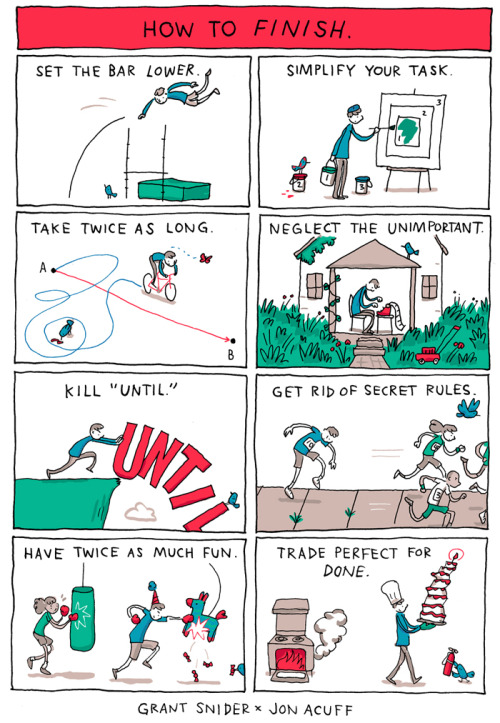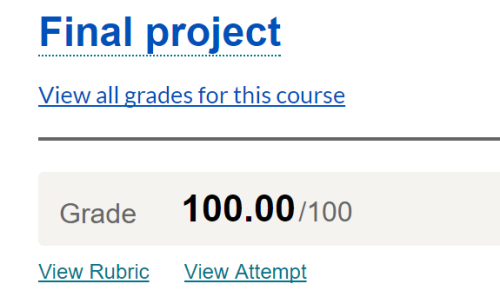So I Keep Seeing Posts On Studyblr About How To Take Notes, Some Of Them “official” Methods Like
So I keep seeing posts on studyblr about how to take notes, some of them “official” methods like the Cornwell method or whatever it’s called, others more based on personal experience/ideas, but basically all of those don’t work well with math and physics.
So I made examples of how I take notes in physics and math, which based on what I’ve seen from professors and other students is pretty standard. (Blue text is commentary on the notes)

In math always start by defining the variables, because you will forget and you need to know all the assumptions you’ve made (like “did I define the function f as continuous, differentiable, bijective or just continuous and bijective?”). Drawings are good since they help visualise the abstract stuff (and look pretty), but not necessary. Always write down definitions, theorems, and lemmas, and ESPECIALLY their proofs. Exercises (both proof exercises and application exercises should be written down too, with varying detail based on how easy it is for you.
In math, and a bit less so in physics, you should always try to use mathematical symbols to shorten text. For the theorem I wrote what I would actually write in white, and below in blue I wrote the full, no symbol version of that. It’s pretty obvious which will be written down faster in class.
And never forget to write that sweet little quod erat demonstratum square at the end of a proof.

In physics the only thing you ALWAYS have to write down is a work through of an exercise or proof (this, of course, includes defining the variables, unless you’re the same variables as last time and can refer back to those). Since physics is about THE REAL WORLD you should strive to draw diagrams constantly, since sometimes you won’t be able to find a solution until you draw the diagram and examine the system (some proofs, especially those in optics, rely heavily on diagrams to explain what the fuck is even going on).
Unlike in math, in physics everything has a unit, which you should ALWAYS mark SOMEWHERE, because you might figure an exercise out solely based on your knowledge of units.
More Posts from Purpletelescope and Others
hold on a fucking second. delaware is a state?? i thought it was a river? or is the river more important than the state? why don't i know this? (i should mention i don't like in america, i'm just confused)
there is delaware (state) and delaware (river)
both are equally strange
the state is a tiny little cryptid thing
the rive is a monster that spans new york, pennsylvania, new jersey and delaware. also washington crossed it once and that was like kinda a big deal i guess. like crossing the rubicon in rome.
the state tries to me more important with its “im the first state!!!” bs (seriously its even on the fucking license plates) but we all know. its the river.
hw fanfic? 👀👀
okay guys this is very nsfw. apparently this was turned in as a homework assignment; the annotations are from a very confused TA.









How to Finish
I drew this poster for Jon Acuff and his FINISH book tour. Big thanks to Jon for this collaboration, his book has some great ideas about how to complete creative and life goals.

this is the perfect grade of good luck
reblog in 5 seconds and all of your grades will inch ever closer to perfect
Spectacular 🤩
I don’t think there are words or pictures adequate enough to describe how absolutely spectacular Møre og Romsdal is. This is Trollstigen, my favourite viewpoint of the entire trip :)









my masterpost | my studygram | ask me anything
[click images for high quality]
Other advice posts that may be of interest:
How To Stop Procrastinating
How To Study When You Really Don’t Want To
Active Revision Techniques
How to Defeat Procrastination

How to Defeat Procrastination | A Mini Guide
Use your intrapersonal intelligence. Ask yourself when and why you procrastinate. Use your insights to identify the appropriate strategy to deal with those issues.
Identify a purpose or meaning. Sometimes, it simply isn’t enough to do something for the sake of doing it. Know why you want to do it, it’ll be easier then. List down your goals, and beside it, identify the benefits. So that, when you feel your spirits drooping, you can look at the list be reminded of why you have to do it.
Take charge of the situation. Gather up all the supplies and materials you need to get started. Choose a work environment where you can really really focus on what you are doing. Take responsibility!
Prioritize and stick to the order. When you feel overwhelmed, make a list of tasks that needs to be done. Tackle the high-priority tasks first.
Relax your personal standards. If you’re a serial perfectionist (like me), lower your unrealistically high standards and expectations. You can still continue to produce quality work without it always having to be the BEST.
Face your fear of failure. Focus on your positive traits. I’m hella sure you’ve got plenty of those! Focus on your accomplishments, and the skills you’ve acquired! Go in front of your mirror and tell yourself affirmations and positive pep talks!
Visualize success. Visualize yourself working through the task, feeling positive about your work, and complete the task on time. Believe you can do it and you will!
-
 ariklein liked this · 10 months ago
ariklein liked this · 10 months ago -
 uknownuseeeer liked this · 1 year ago
uknownuseeeer liked this · 1 year ago -
 misslanguages liked this · 2 years ago
misslanguages liked this · 2 years ago -
 pain-matrix liked this · 2 years ago
pain-matrix liked this · 2 years ago -
 zero-body liked this · 3 years ago
zero-body liked this · 3 years ago -
 cyhers liked this · 3 years ago
cyhers liked this · 3 years ago -
 ngoanamaja liked this · 3 years ago
ngoanamaja liked this · 3 years ago -
 isolatedcreatu reblogged this · 3 years ago
isolatedcreatu reblogged this · 3 years ago -
 solarepan reblogged this · 4 years ago
solarepan reblogged this · 4 years ago -
 nonlinear-student liked this · 4 years ago
nonlinear-student liked this · 4 years ago -
 selenesybill liked this · 4 years ago
selenesybill liked this · 4 years ago -
 vikphysic reblogged this · 4 years ago
vikphysic reblogged this · 4 years ago -
 fillytoria reblogged this · 4 years ago
fillytoria reblogged this · 4 years ago -
 fillytoria liked this · 4 years ago
fillytoria liked this · 4 years ago -
 shitty-shittake liked this · 4 years ago
shitty-shittake liked this · 4 years ago -
 the-shooting-star liked this · 4 years ago
the-shooting-star liked this · 4 years ago -
 never-ever-rest liked this · 4 years ago
never-ever-rest liked this · 4 years ago -
 soft-ocles liked this · 4 years ago
soft-ocles liked this · 4 years ago -
 desolateexistance liked this · 4 years ago
desolateexistance liked this · 4 years ago -
 crispyengineers-blog liked this · 4 years ago
crispyengineers-blog liked this · 4 years ago -
 josie-chan reblogged this · 4 years ago
josie-chan reblogged this · 4 years ago -
 josie-chan liked this · 4 years ago
josie-chan liked this · 4 years ago -
 siri-of-all-trades liked this · 4 years ago
siri-of-all-trades liked this · 4 years ago -
 studentofthecosmos reblogged this · 4 years ago
studentofthecosmos reblogged this · 4 years ago -
 inaccurate-equation reblogged this · 4 years ago
inaccurate-equation reblogged this · 4 years ago -
 inaccurate-equation liked this · 4 years ago
inaccurate-equation liked this · 4 years ago -
 tranquilstudy reblogged this · 4 years ago
tranquilstudy reblogged this · 4 years ago -
 hannieschaftlover liked this · 4 years ago
hannieschaftlover liked this · 4 years ago -
 kellypaul15 liked this · 4 years ago
kellypaul15 liked this · 4 years ago -
 defenestried liked this · 4 years ago
defenestried liked this · 4 years ago -
 everythingisriggedinyourfavour liked this · 4 years ago
everythingisriggedinyourfavour liked this · 4 years ago -
 ultramarineiris liked this · 4 years ago
ultramarineiris liked this · 4 years ago -
 littlecupcakesstudyblr liked this · 4 years ago
littlecupcakesstudyblr liked this · 4 years ago -
 atenavictoria liked this · 4 years ago
atenavictoria liked this · 4 years ago -
 villageharlot liked this · 4 years ago
villageharlot liked this · 4 years ago -
 sweet-sappphic liked this · 4 years ago
sweet-sappphic liked this · 4 years ago -
 lattesandlearning liked this · 4 years ago
lattesandlearning liked this · 4 years ago -
 icedchai1999 liked this · 4 years ago
icedchai1999 liked this · 4 years ago -
 out-of-pulse reblogged this · 4 years ago
out-of-pulse reblogged this · 4 years ago -
 luv-skittles liked this · 4 years ago
luv-skittles liked this · 4 years ago -
 zauberpalme liked this · 4 years ago
zauberpalme liked this · 4 years ago

